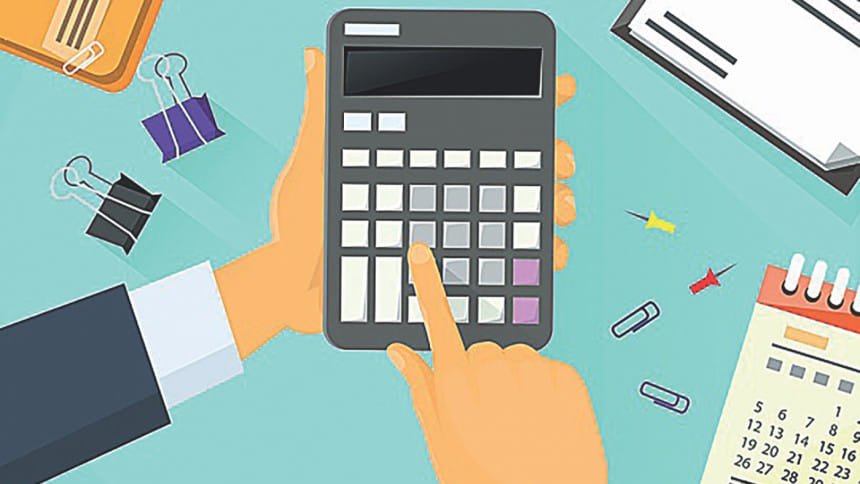Decline in savings downs investment

Each month, Ayesha Amin, a housewife, aims to put Tk 5,000 of the money her husband hands over to her for the running of the house, in her savings account.
She puts the amount into a deposit pension scheme (DPS) with a local bank in her two-year-old son’s name. As a housewife, she has no independent source of income, so this is her way of contributing to her son’s higher education in a foreign university.
On some months, she even manages to salt away Tk 7,000. But such amounts of savings from monthly expenses are set to become a distant memory given the tax measures in Finance Minister AHM Mustafa Kamal’s maiden budget.
The budget—with its higher taxes and duties on many household essentials like imported powdered milk and sugar, spices, soybean oil, mustard oil, mobile phone use among others and the gas price hike—raises the expenditure burden on the middle-class such as Amin’s family and throws a spanner in their saving plans.
The middle-class now accounts for more than 20 percent of the population, according to a study of the Bangladesh Institute of Development Studies, so a decline in savings among this segment of society means a big chunk of investment that is lost.
Because, in economics, it is said that the level of savings equals the level of investment as investment needs to be financed from savings. If people save more, it enables the banks to lend more to firms for investment.
An economy where savings are very low means that the economy is choosing short-term consumption over long-term investment. To starve the economy of investment can lead to future bottlenecks and shortages.
And the Harrod-Domar model of economic growth suggests the level of savings is a key factor in determining economic growth rates.
The theory purports that growth depends on the quantity of labour and capital; more investment by way of higher savings leads to capital accumulation, which generates economic growth.
It argues that in developing countries, low rates of economic growth and development are linked to low savings rates. This creates a vicious cycle of low investment, low output and low savings.
The model implies that economic growth depends on policies to increase investment, by increasing savings, and using that investment more efficiently through technological advances.
Whilst in the long-term savings are an important factor in determining investment, in the short-term a rapid rise in savings can cause a fall in consumer spending—which can lead to a recession.
Bangladesh’s tremendous growth momentum in the past three years is down to consumption for the most part, so policies that encourage savings can take the winds out of the economy’s sails.
Subsequently, a rapid rise in savings would not cause an equivalent rise in investment. Although banks would see a rise in their deposits, they would become reluctant to lend to firms because the economic outlook would have become pessimistic by then.
Also, in a recession, firms may not want to invest even if banks are willing to lend at low rates.
In short, a happy medium has to be reached—and that is where the government fell short this time and in the past.
Ashdeen Hossain, a first-year student at Dhaka University, stows away half of the salary he draws from a part-time job he secured six months ago in a high-interest-bearing savings account with a local bank.
He was hoping to buy a top-of-the-line mobile phone with part of the amount saved.
But, the bank deducts 15 percent of his interest income as tax, which is extremely unfair given that his annual income falls comfortably below the income-free tax ceiling of Tk 2.50 lakh.
The taxes on his savings account do not end here: he has to pay 15 percent value-added tax on the account maintenance fee.
“I am starting to see no merit in keeping the money in the bank. I might as well keep it under my mattress,” says the disappointed young saver.
His enthusiasm for saving was further dampened after he learnt that imported smartphones will become costlier from this fiscal year for the hike in customs duty from 15 percent to 25 percent.
Besides, with the new budget, he all of a sudden found himself with a lower capacity to save, like Amin. Many of the goods and services that he uses regularly have become dearer, like ride-hailing services and mobile phone use.
“I would be pleased if I manage to save Tk 3,000 every month now,” said the 18-year-old.
Amin, too, echoed the same.
“It’s always the middle-class that has to bear the brunt of government experiments,” sighed Amin.

 For all latest news, follow The Daily Star's Google News channel.
For all latest news, follow The Daily Star's Google News channel. 



Comments